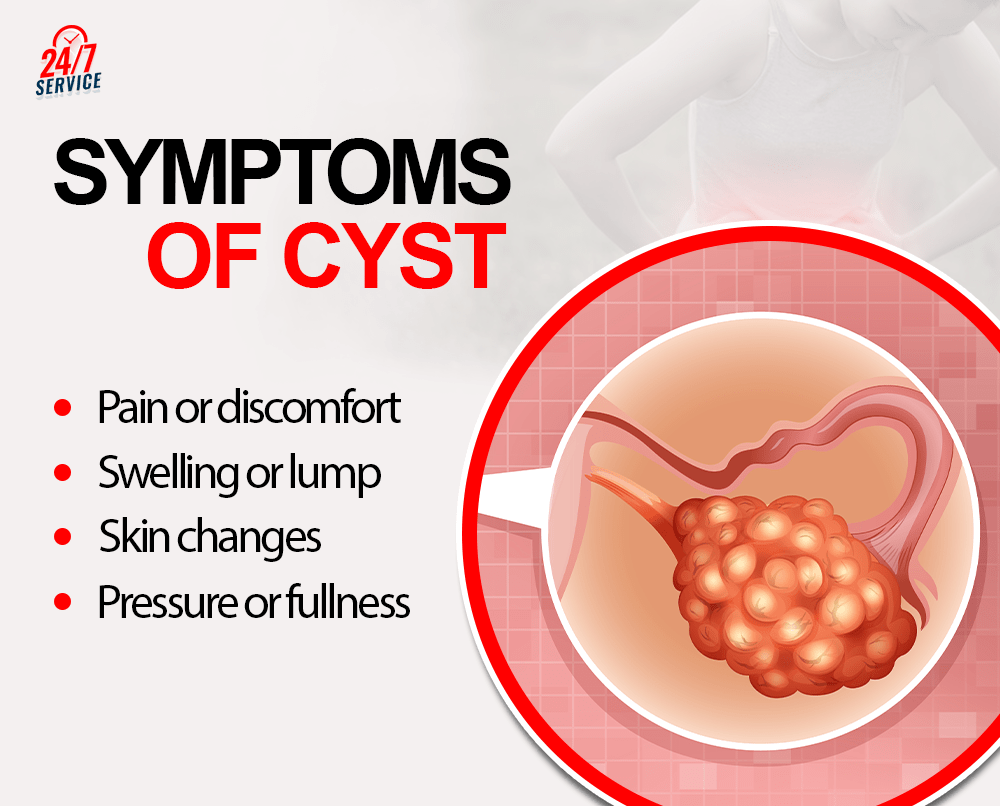Comprehensive Guide to Cysts: Types, Symptoms, Causes, and the Best Treatment at Mukat Hospital
Cysts are a common medical condition that can cause discomfort and concern for those affected. Understanding the different types of cysts, their symptoms, and causes is crucial for proper diagnosis and treatment. At Mukat Hospital, we specialize in providing comprehensive care for patients with cysts, offering the best cyst treatment in Chandigarh options available.
Cysts can have various causes, including genetic conditions, infections, chronic inflammatory conditions, hormonal imbalances, blocked ducts, or injuries that cause fluid or debris to accumulate.

Types: There are different types of cysts, such as:
Ovarian cysts: These form in the ovaries and can be functional (related to the menstrual cycle) or pathological (resulting from abnormal cell growth).
Sebaceous cysts: These develop under the skin and are filled with sebum, a waxy substance produced by oil glands.
Ganglion cysts: These commonly appear on the wrist or hand and are filled with fluid from joints or tendons.
Breast cysts: These are fluid-filled sacs that can form in breast tissue.
Kidney cysts: These can be simple or complex and may be associated with certain kidney diseases.
Hydatid Cyst: A hydatid cyst is a parasitic infection caused by the larvae of the tapeworm Echinococcus granulosus. It primarily affects the liver, but can also be found in the lungs and brain. The cysts are typically filled with fluid and can cause various symptoms depending on their size and location. In the liver, hydatid cysts can cause abdominal pain, jaundice, and hepatomegaly (enlarged liver). In the lungs, they can lead to coughing, chest pain, and difficulty breathing. In the brain, hydatid cysts can cause headaches, seizures, and neurological deficits.
Dermoid cysts: These are ovarian cysts that contain tissues like hair, teeth, or skin.
Omental/ Mesenteric Cyst: They are rare benign abdominal tumors that arise from the omentum (a fold of the peritoneum) or mesentery (a fold of the peritoneum that attaches the intestines to the abdominal wall). These cysts are usually filled with serous fluid and can vary in size.
Recognizing the symptoms of cysts
Recognizing and understanding the symptoms of cysts is essential in identifying and managing your condition effectively. While the symptoms may vary depending on the type of cyst and its location, some common symptoms include:
1. Pain or discomfort: Cysts can cause pain or discomfort in the affected area, especially if they are large or press against surrounding tissues or organs.
2. Swelling or lump: A visible swelling or lump may be present, indicating the presence of a cyst.
3. Skin changes: Cysts on the skin may cause redness, tenderness, or changes in texture and appearance.
4. Limited range of motion: Cysts near joints or tendons can limit your ability to move the affected area freely.
5. Pressure or fullness: Cysts, particularly those in the reproductive organs or digestive system, can cause a feeling of pressure or fullness.
6. Symptoms of an infection in a cyst can vary depending on the location and severity of the infection. Some common symptoms include:
a) Increased pain or tenderness: The area around the cyst may become more painful or tender to touch.
b) Redness and swelling: The skin around the cyst may appear red and swollen.
c) Warmth: The affected area may feel warm to the touch.
d) Pus or discharge: An infected cyst may develop a pocket of pus, which can
Uncovering the root causes of cyst formation
1. Hormonal imbalances: Hormonal fluctuations, particularly during puberty, pregnancy, or menopause, can trigger the formation of cysts. Hormonal imbalances disrupt the normal functioning of the ovaries, leading to the development of ovarian cysts.
2. Genetic predisposition: Some individuals have a genetic predisposition to developing certain types of cysts. If you have a family history of cysts, it is important to be aware and monitor any symptoms or changes in your body.
3. Inflammation: Inflammation in the body can contribute to the formation of cysts. Chronic conditions such as polycystic ovary syndrome (PCOS) or conditions that cause inflammation in the organs can increase the risk of developing cysts.
4. Blockages or obstructions: Any blockages or obstructions in the body’s ducts or passageways can lead to the build-up of fluid, resulting in the formation of cysts. This can occur in the kidneys, liver, or even in the breast tissue.
5. Trauma or injury: In some cases, trauma or injury to a specific area of the body can trigger the formation of cysts. This can occur in joints, tendons, or even the skin.
Introducing Mukat Hospital: Leader in cyst treatment
Mukat Hospital is renowned for its expertise in the treatment of cysts, providing patients with comprehensive and personalized care. With state-of-the-art facilities and a team of highly skilled medical professionals, they are committed to delivering the best outcomes for their patients.
The hospital offers a wide range of cyst treatment options for different types of cysts, ensuring that each individual receives the most appropriate and effective care. From minimally invasive procedures like Laparoscopic Cystectomy or cyst drainage and aspiration to surgical interventions for complex cases, Mukat Hospital has the expertise and technology to handle various cyst-related conditions.











